Chameleon People - [12]
Ane Line Fredriksen was just over five foot six, and one of those modern women who was solid without being fat. The most striking thing about her was her mane of red hair, and the second most striking thing was the alertness of her distinctive blue-green eyes. She also differed from the rest of her family in clothes and style, in that she was wearing jeans and a denim jacket, and her blouse was unbuttoned at the top. My initial impression was that I would like her best of all.
This theory was not weakened in any way by her unusually firm handshake. She barely took the time to sit down before she leaned towards my desk and said impatiently: ‘So, what is it you would like to know?’
I briefly told her about events the evening before and the arrest of the boy on the red bicycle, and that that was all we knew about her father’s murder so far.
Ane Line Fredriksen continued to lean forwards and listened intently as I spoke. She had a bad habit of taking in the room, which annoyed me slightly, but otherwise my impression was very positive.
She gave a quick nod a couple of times, but still said nothing when I had finished my account. I therefore took out the photographs of the arrestee and put them down on the desk. She immediately studied them with interest, but then shook her head in visible disappointment.
‘I have never seen him before. I would have remembered, because it does not look like he has had an easy life. Are you sure it was he who killed Father? Why on earth would he do that?’
So I told her straight: we could not be certain that it was the boy who killed her father, and if it was, we did not know why he had done it. There was much to indicate that it was him, but he had not confessed and we had no eyewitnesses to the murder itself.
‘How intriguing,’ she said.
I did not detect any great sorrow at the loss of her father in the otherwise very nice Ane Line Fredriksen. And apparently she saw my surprise.
‘I understand that it might seem a bit strange that I am not more upset. I am actually easily moved at funerals and the like. But we come from very practical farming stock, my father was an elderly man, and we were not particularly close any more. Though I have to say he was a very good father when we were little. We got whatever we pointed at and had more time with him than many other children had with their fathers. But once we grew up he became busy with his politics and business. I never really knew him as anything other than a family man. When I saw him on the television I always thought he was too conservative in his politics and didn’t show enough sympathy for people less well off. He was also conservative in his values. First, he didn’t like the man I married, and then he didn’t like the fact that I got divorced.’
‘He had just left his mistress when he was killed yesterday,’ I said.
‘That never really bothered me. Father’s women are something we have had to live with since nursery and this one was very discreet. So we knew about her, but never saw her. Have you met her? What is she like?’
Her boldness took me by surprise. I managed to blurt out that she was a thirty-seven-year-old pianist who made quite an impression, before I saved the situation and said that at present there was nothing to indicate any connection between her and his murder. His mistress stood to gain nothing from his death. On the contrary, she would, in fact, be worse off.
‘I thought about that on the way here. His mistress has no rights and won’t be left a penny, whereas my brother and sister and I will inherit all the money. It’s unfair, really.’
That was the first time I could ever remember hearing an heir say that they were getting too much. And it was also the first time that I had heard anyone express any sympathy for a woman their father had betrayed their mother with.
I was struck by an unfamiliar thought, that I was now sitting talking to a multi-millionairess. So I remarked that the purely financial aspect of the case did not play much of a role here.
Ane Line Fredriksen stretched in the chair with slow, deliberate movements, like a gigantic ginger cat. For a moment I was worried that she might start moulting. Instead she leaned forward again.
‘Well, that is not strictly the case. My siblings and I have never been poor. But as you may have heard, it suits us all rather well to get our inheritance now.’
I had not heard any such thing and immediately asked her to elaborate. She did not need to be asked twice.
‘Well, Johan has always been aware that he is the eldest and also the only son. So he has always been the one with the greatest ambition with regards to money and the like. Since he graduated, he has wanted to start his own law firm and invest in property himself. Father never entirely trusted him and did not want to pay out the inheritance early. The atmosphere at Sunday lunch two weeks ago was tense, to say the least.’
I noted this down and asked why her younger sister needed the money now.
‘Vera is another story altogether. My father’s constant concern and care for her is perhaps the best illustration of what a good father he was. Vera has undoubtedly the best head of us all, but is also the one with the weakest nerves. She gets frightened if the wind blows, faints whenever she’s startled. She has excellent qualifications, but no one really believes she’ll ever be able to work. I’ve said to her so many times that she just needs to believe in herself and get out there. But she doesn’t dare to. So she has a master’s degree in chemistry, but just mopes around at home and doesn’t even try to find work. And as far as I know, she’d never kissed a man before she was twenty-three. You can imagine the rest.’
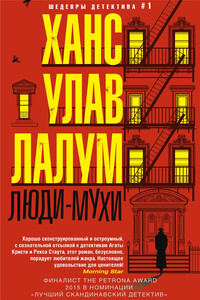
Убит бывший лидер норвежского Сопротивления и бывший член кабинета министров Харальд Олесен. Его тело обнаружено в запертой квартире, следов взлома нет, орудие убийства отсутствует. На звук выстрела к двери Олесена сбежались все соседи, но никого не увидели. Инспектор уголовного розыска Колбьёрн Кристиансен считает, что убийство, скорее всего, совершил кто-то из них. Более того, он полагает, что их показания лживы.
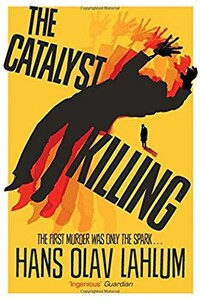
The third mystery in the hugely compelling, bestselling international crime series from Norway's answer to Agatha Christie, Hans Olav Lahlum, The Catalyst Killing will have you guessing to the final clue. The first murder was only the spark… 1970: Inspector Kolbjorn Kristiansen, known as K2, witnesses a young woman desperately trying to board a train only to have the doors close before her face. The next time he sees her, she is dead… As K2 investigates, with the help of his precocious young assistant Patricia, he discovers that the story behind Marie Morgenstierne's murder really began two years ago, when a group of politically active young people set out on a walking tour in the mountains.
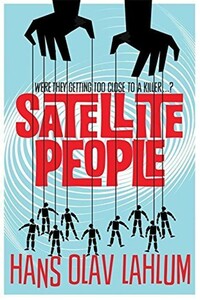
A gripping, evocative, and ingenious mystery which pays homage to Agatha Christie, Satellite People is the second Norwegian mystery in Hans Olav Lahlum's series. Oslo, 1969: When a wealthy man collapses and dies during a dinner party, Norwegian Police Inspector Kolbjorn Kristiansen, known as K2, is left shaken. For the victim, Magdalon Schelderup, a multimillionaire businessman and former resistance fighter, had contacted him only the day before, fearing for his life. It soon becomes clear that every one of Schelderup's 10 dinner guests is a suspect in the case.
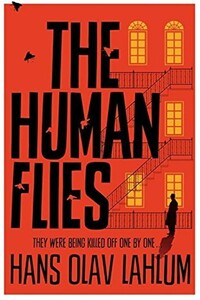
Oslo, 1968: ambitious young detective Inspector Kolbjorn Kristiansen is called to an apartment block, where a man has been found murdered. The victim, Harald Olesen, was a legendary hero of the Resistance during the Nazi occupation, and at first it is difficult to imagine who could have wanted him dead. But as Detective Inspector Kolbjorn Kristiansen (known as K2) begins to investigate, it seems clear that the murderer could only be one of Olesen's fellow tenants in the building. Soon, with the help of Patricia – a brilliant young woman confined to a wheelchair following a terrible accident – K2 will begin to untangle the web of lies surrounding Olesen's neighbors; each of whom, it seems, had their own reasons for wanting Olesen dead.
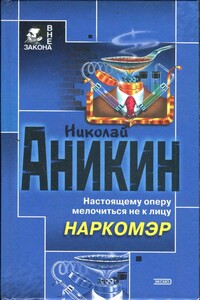
Тупик. Стена. Старый кирпич, обрывки паутины. А присмотреться — вроде следы вокруг. Может, отхожее место здесь, в глухом углу? Так нет, все чисто. Кто же сюда наведывается и зачем? И что охраняет тут охрана? Да вот эту стену и охраняет. Она, как выяснилось, с секретом: время от времени отъезжает в сторону. За ней цех. А в цеху производят под видом лекарства дурь. Полковник Кожемякин все это выведал. Но надо проникнуть внутрь и схватить за руку отравителей, наживающихся на здоровье собственного народа. А это будет потруднее…
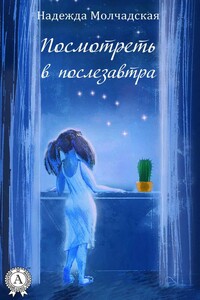
«Посмотреть в послезавтра» – остросюжетный роман-триллер Надежды Молчадской, главная изюминка которого – атмосфера таинственности и нарастающая интрига.Девушка по имени Венера впадает в кому при загадочных обстоятельствах. Спецслужбы переправляют ее из закрытого городка Нигдельск в Москву в спецклинику, где известный ученый пытается понять, что явилось причиной ее состояния. Его исследования приводят к неожиданным результатам: он обнаруживает, что их связывает тайна из его прошлого.
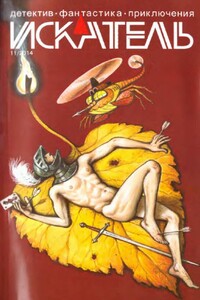
«ИСКАТЕЛЬ» — советский и российский литературный альманах. Издаётся с 1961 года. Публикует фантастические, приключенческие, детективные, военно-патриотические произведения, научно-популярные очерки и статьи. В 1961–1996 годах — литературное приложение к журналу «Вокруг света», с 1996 года — независимое издание.В 1961–1996 годах выходил шесть раз в год, в 1997–2002 годах — ежемесячно; с 2003 года выходит непериодически.Содержание:Анатолий Королев ПОЛИЦЕЙСКИЙ (повесть)Олег Быстров УКРАДИ МОЮ ЖИЗНЬ (окончание) (повесть)Владимир Лебедев ГОСТИ ИЗ НИОТКУДА.
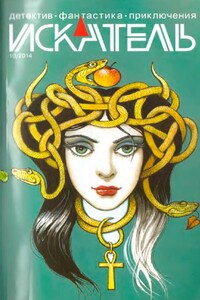
«ИСКАТЕЛЬ» — советский и российский литературный альманах. Издается с 1961 года. Публикует фантастические, приключенческие, детективные, военно-патриотические произведения, научно-популярные очерки и статьи. В 1961–1996 годах — литературное приложение к журналу «Вокруг света», с 1996 года — независимое издание.В 1961–1996 годах выходил шесть раз в год, в 1997–2002 годах — ежемесячно; с 2003 года выходит непериодически.Содержание:Олег Быстров УКРАДИ МОЮ ЖИЗНЬ (повесть);Петр Любестовский КЛЕТКА ДЛЯ НУТРИИ (повесть)
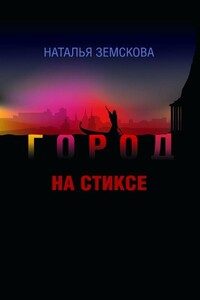
Наталья Земскова — журналист, театральный критик. В 2010 г. в издательстве «Астрель» (Санкт-Петербург) вышел её роман «Детородный возраст», который выдержал несколько переизданий. Остросюжетный роман «Город на Стиксе» — вторая книга писательницы. Молодая героиня, мечтает выйти замуж и уехать из забитого новостройками областного центра. Но вот у неё на глазах оживают тайны и легенды большого губернского города в центре России, судьбы талантливых людей, живущих рядом с нею. Роман «Город на Стиксе» — о выборе художника — провинция или столица? О том, чем рано или поздно приходится расплачиваться современному человеку, не верящему ни в Бога, ни в черта, а только в свой дар — за каждый неверный шаг.
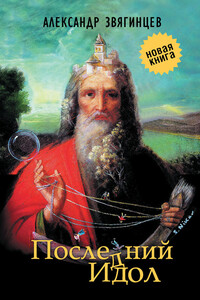
В сборник «Последний идол» вошли произведения Александра Звягинцева разных лет и разных жанров. Они объединены общей темой исторической памяти и личной ответственности человека в схватке со злом, которое порой предстает в самых неожиданных обличиях. Публикуются рассказы из циклов о делах следователей Багринцева и Северина, прокуроров Ольгина и Шип — уже известных читателям по сборнику Звягинцева «Кто-то из вас должен умереть!» (2012). Впервые увидит свет пьеса «Последний идол», а также цикл очерков писателя о событиях вокруг значительных фигур общественной и политической жизни России XIX–XX веков — от Петра Столыпина до Солженицына, от Александра Керенского до Льва Шейнина.